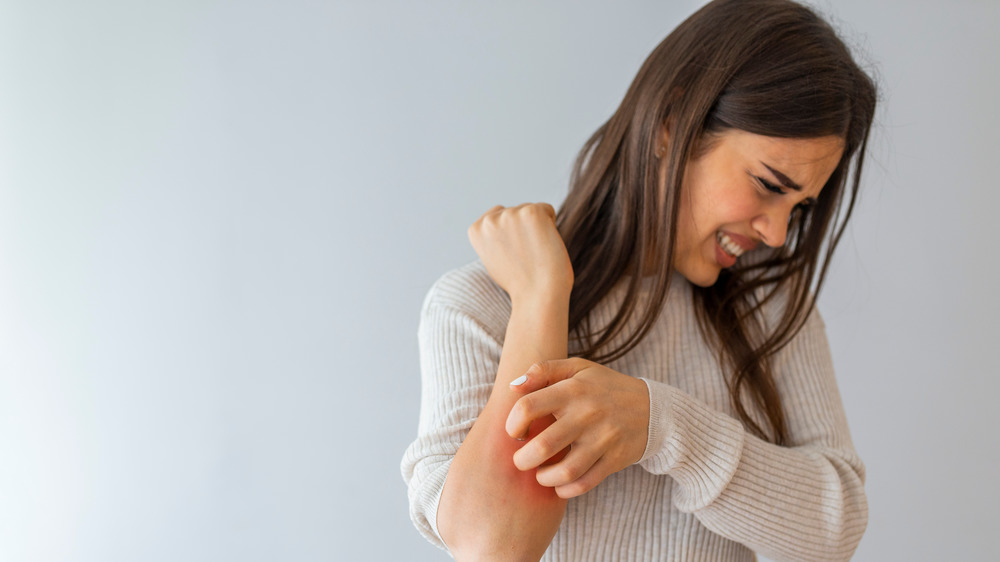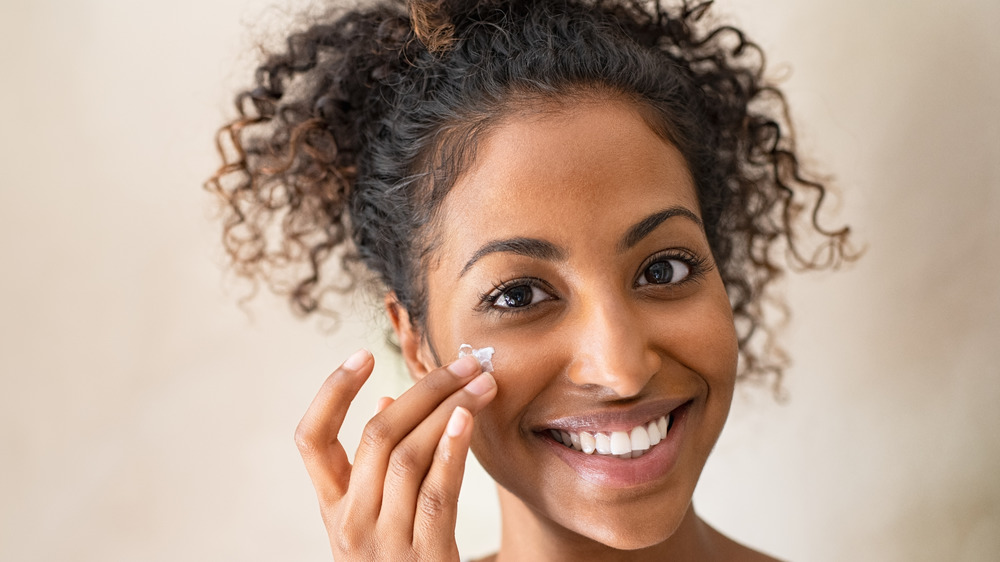The Real Reason We Feel Itchy
Did reading about being itchy make you start to feel itchy? Are you itching to know why you even feel itchy at all? When we have a rash or an allergy, itching makes sense, right? But what about when there doesn't seem to be any reason at all for the need to start scratching that itch? It's time to get to the bottom of this head-scratching phenomenon!
Believe it or not, there is a biological purpose behind that irritating itch, which is also known as pruritus when the itching is more severe (via Journal Cell Biology). The source of your itch can be found in a primary cell type in the skin called keratinocytes. According to PromoCell, keratinocytes make up 90 percent of the outmost layer of the skin, or epidermis. Keratinocytes are highly specialized cells that provide a key first wall of defense again contaminants entering the body while also maintaining the body's homeostasis.
How do keratinocytes technically cause the itching sensation? Studies have shown in mice that these cells release a histamine that may be involved (via ScienceDirect).
How to prevent the itchy feeling in the first place
Okay, sure — it's nice to know the science behind this itchy mystery, but how can you prevent the itch from even starting? Well, the good news is that a lot of this in your control and simply involves maintaining the health of your skin on a regular basis.
One preventive measure is to keep your skin moisturized, especially if you are out in the sun a lot or live in a dry climate. Also, use soaps that don't irritate your skin, and when you wash, be sure to use warm water, not hot. And pay attention to the fabric you're wearing. That might have something to do with why you feel itchy (via WebMD). And as pleasant as it may feel, you should always try to avoid scratching. According to Medical News Today, scratching an itch actually creates more itching, and you don't want any more of that!
Of course, if despite these and other measures your itchiness persists, or you develop a rash or hives, you should visit a dermatologist or an allergist immediately.


